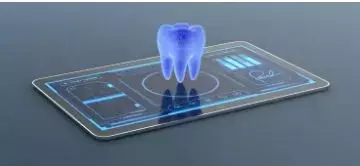- Home
- Medical news & Guidelines
- Anesthesiology
- Cardiology and CTVS
- Critical Care
- Dentistry
- Dermatology
- Diabetes and Endocrinology
- ENT
- Gastroenterology
- Medicine
- Nephrology
- Neurology
- Obstretics-Gynaecology
- Oncology
- Ophthalmology
- Orthopaedics
- Pediatrics-Neonatology
- Psychiatry
- Pulmonology
- Radiology
- Surgery
- Urology
- Laboratory Medicine
- Diet
- Nursing
- Paramedical
- Physiotherapy
- Health news
- Fact Check
- Bone Health Fact Check
- Brain Health Fact Check
- Cancer Related Fact Check
- Child Care Fact Check
- Dental and oral health fact check
- Diabetes and metabolic health fact check
- Diet and Nutrition Fact Check
- Eye and ENT Care Fact Check
- Fitness fact check
- Gut health fact check
- Heart health fact check
- Kidney health fact check
- Medical education fact check
- Men's health fact check
- Respiratory fact check
- Skin and hair care fact check
- Vaccine and Immunization fact check
- Women's health fact check
- AYUSH
- State News
- Andaman and Nicobar Islands
- Andhra Pradesh
- Arunachal Pradesh
- Assam
- Bihar
- Chandigarh
- Chattisgarh
- Dadra and Nagar Haveli
- Daman and Diu
- Delhi
- Goa
- Gujarat
- Haryana
- Himachal Pradesh
- Jammu & Kashmir
- Jharkhand
- Karnataka
- Kerala
- Ladakh
- Lakshadweep
- Madhya Pradesh
- Maharashtra
- Manipur
- Meghalaya
- Mizoram
- Nagaland
- Odisha
- Puducherry
- Punjab
- Rajasthan
- Sikkim
- Tamil Nadu
- Telangana
- Tripura
- Uttar Pradesh
- Uttrakhand
- West Bengal
- Medical Education
- Industry
Artificial intelligence enhances caries diagnostic efficacy, reports study

In a recent study, researchers have highlighted that artificial intelligence (AI) can increase dentists' diagnostic accuracy but may also increase invasive treatment decisions. The findings have been put forth in Journal of Dentistry.
According to recent research reports, AI algorithms are able to detect caries and caries-related cavities on machine-readable intraoral photographs with an accuracy of at least 90%. It has been documented that AI can increase dentists' diagnostic accuracy, mainly via increasing their sensitivity for detecting enamel lesions, but may also increase invasive therapy decisions. However,differences in the effects of AI for different dentists should be explored, and dentists should be guided as to which therapy to choose when detecting caries lesions using AI support.
To gain a deeper understanding on the matter, a team of researchers aimed to assess the impact of an artificial intelligence (AI)-based diagnostic-support software for proximal caries detection on bitewing radiographs.
For the study methodology, a cluster-randomized cross-over controlled trial was conducted. A commercially available software employing a fully convolutional neural network for caries detection (dentalXrai Pro, dentalXrai Ltd.) was randomly employed by 22 dentists, supporting their caries detection on 20 bitewings randomly chosen from a pool of 140 bitewings, with 10 bitewings randomly being supported by AI and 10 not.
Caries was subgrouped as enamel, early dentin and advanced dentin caries, and accuracy and treatment decisions for each caries lesion assessed.
Results revealed some interesting facts.
- Dentists with AI showed a significantly higher mean (95% CI) area under the Receiver-Operating-Characteristics curve (0.89; 0.87-0.90) than those without AI (0.85; 0.83-0.86; p<0.05), mainly as their sensitivity was significantly higher (0.81; 0.74-0.87 compared with 0.72; 0.64-0.79; p<0.05) while the specificity was not significantly affected (p>0.05).
- This increase in sensitivity was found for enamel, but not early or advanced dentin lesions. -
- Higher sensitivity came with an increase in non-invasive, but also invasive treatment decisions (p<0.05).
The clinical application of AI methods might potentially become feasible in the future but requires more fundamental research to overcome existing limitations and has to consider relevant differential diagnostic findings.
For full article follow the link: https://doi.org/10.1016/j.jdent.2021.103849
Source: Journal of Dentistry
Dr Satabdi Saha (BDS, MDS) is a practicing pediatric dentist with a keen interest in new medical researches and updates. She has completed her BDS from North Bengal Dental College ,Darjeeling. Then she went on to secure an ALL INDIA NEET PG rank and completed her MDS from the first dental college in the country – Dr R. Ahmed Dental College and Hospital. She is currently attached to The Marwari Relief Society Hospital as a consultant along with private practice of 2 years. She has published scientific papers in national and international journals. Her strong passion of sharing knowledge with the medical fraternity has motivated her to be a part of Medical Dialogues.
Dr Kamal Kant Kohli-MBBS, DTCD- a chest specialist with more than 30 years of practice and a flair for writing clinical articles, Dr Kamal Kant Kohli joined Medical Dialogues as a Chief Editor of Medical News. Besides writing articles, as an editor, he proofreads and verifies all the medical content published on Medical Dialogues including those coming from journals, studies,medical conferences,guidelines etc. Email: drkohli@medicaldialogues.in. Contact no. 011-43720751


